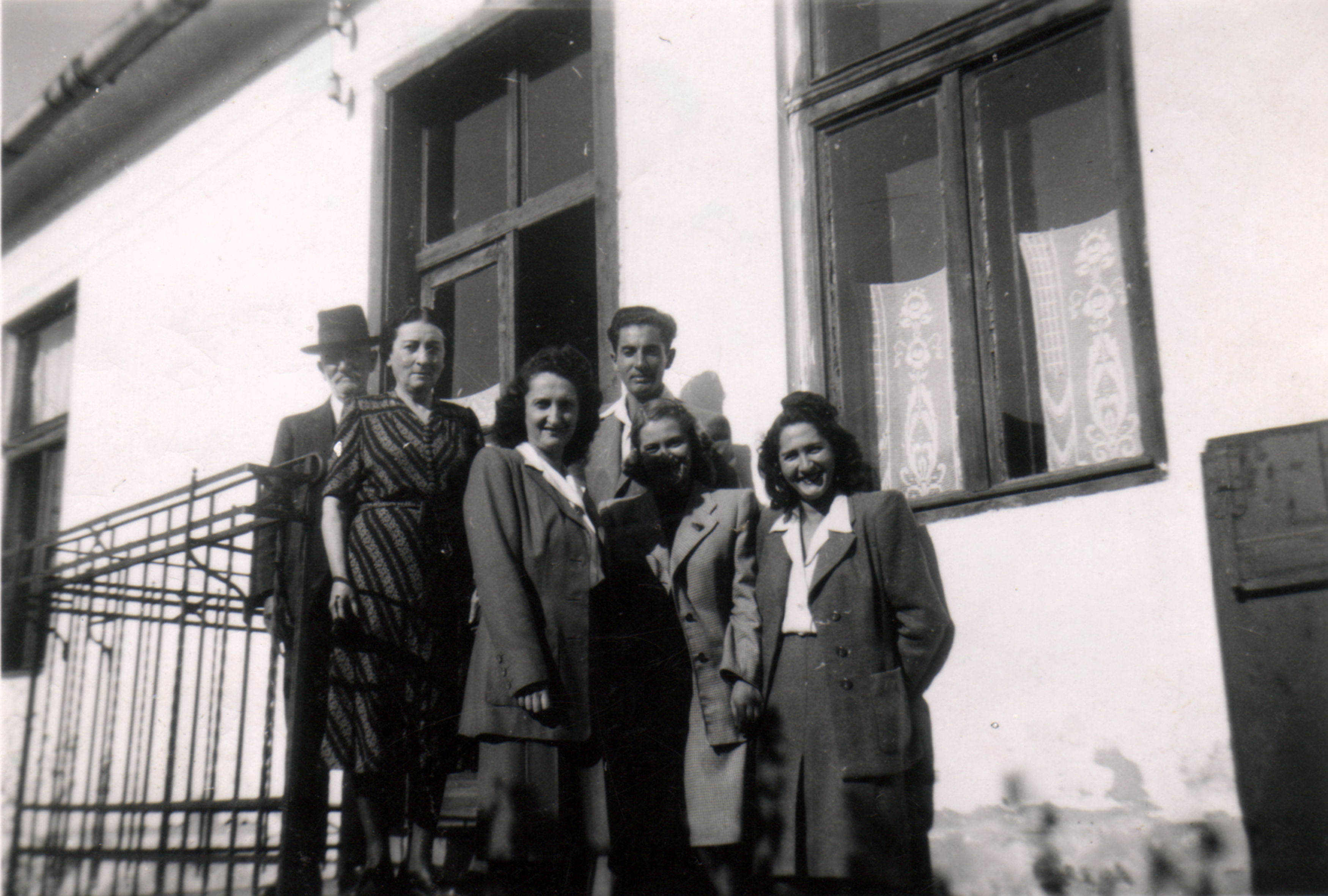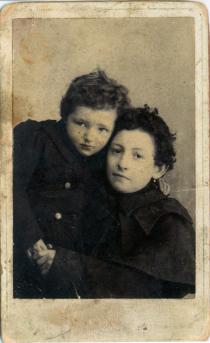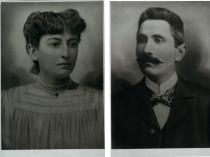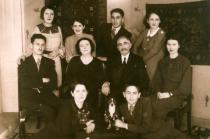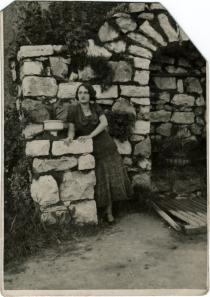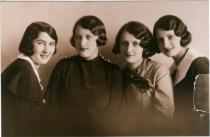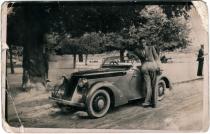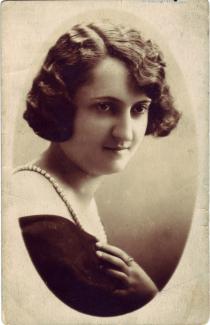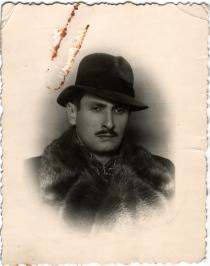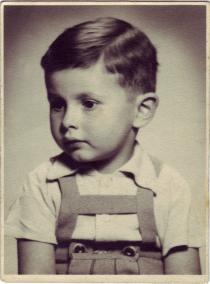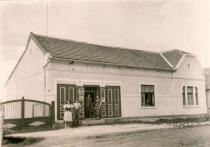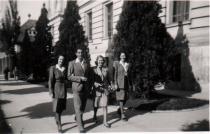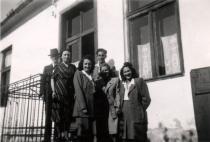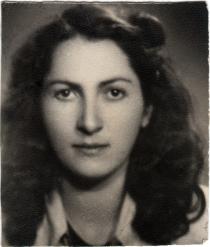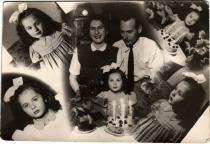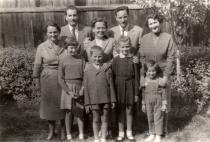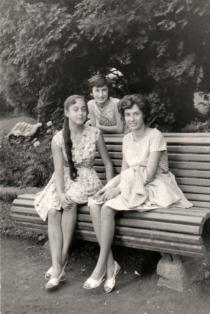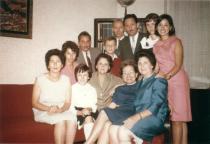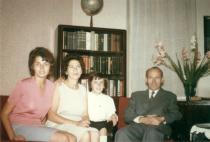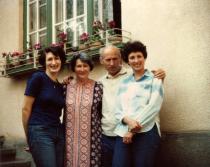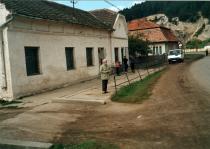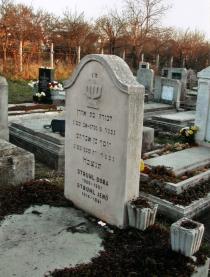The photo was taken in spring 1943 in Kaposvar. From left to right: my father Arnold Struhl, my mother, Fanni Struhl, nee Pascal, my sister Dora Struhl, my brother Jeno Struhl, Jutka, our host, and me. This is the last photo taken of my parents. We lived in this house until deportation.
After the Hungarian authorities entered Gyergyoszarhegy, our pursuit began. Yet, until 1942 they allowed us to remain there. The Germans were still far away, and in 1942 the authorities of that time expelled us from Gyergyoszarhegy, but not in the pursuit of a German order. In winter, in December, they allowed us two weeks to wind up our home. Most of our belongings we gave away for next to nothing.
I can't tell now whether they sent us a written notice, or just summoned us to the parish hall. In any case, we knew we had to go. We had to go, we couldn't appeal, we couldn't do anything about it. We couldn't find a place in Transylvania to go to. Neither in Marosvasarhely, nor in Kolozsvar, nowhere. Finally we went to Transdanubia, because our two brothers did work service there, we wanted to be near them to be able to meet them, and that's how it was. We were assigned a forced domicile in Kaposvar. My brothers Andor and Jeno lived nearby until they got their call-ups to work service.
My brother, Jeno, who did work service, was near Kaposvar. He was already acquainted with the place, and he knew a family, who could get us an apartment. We sent there two wardrobes by freight train. One could transport no matter what by freight train, even furniture. This wasn't about deportation yet.
The apartment we could move into belonged to a young Jewish woman. She was called Judit Frisch, her husband was doing work service. She let us a room, a glassed-in vestibule, we could use the kitchen, but had no bathroom. I can't recall how we organized beds, because we had only one room. There was a couch in the glassed-in vestibule, I was sleeping there, the others in that single room. We were five there from the family: my mother, my father, Dorika, my other sister, Hermin, and me. My father was seventy-six years old then, my mother fifty-six.
Jutka was a nice little woman, she was twenty-two. Her voice, just as her mother's was marvelous, they were both singing in the synagogue. There was a very nice synagogue in Kaposvar. And there was a rabbi too. On high holidays we went to the synagogue as well. The rabbi delivered a nice speech, and he spoke in Hungarian too, but he prayed in Hebrew as well. He was young.
We weren't allowed to do anything else in Kaposvar besides trying to do some needlework or something similar. Since my sister Hermin was a sewer, the woman we lived at got her clients for whom she could sew. Dorika learned how to spin. At that time Angora wool, was very fashionable. First one had to learn it properly; one cannot succeed in it at once. A lot of Jews lived in Kaposvar. Most of the Jews were physicians, but there were craftsmen too, for example tailors and watchmakers. There was a kind woman, she was Jewish too, and she was engaged in spinning angora. She taught Dorika, and so she was spinning the whole day.
